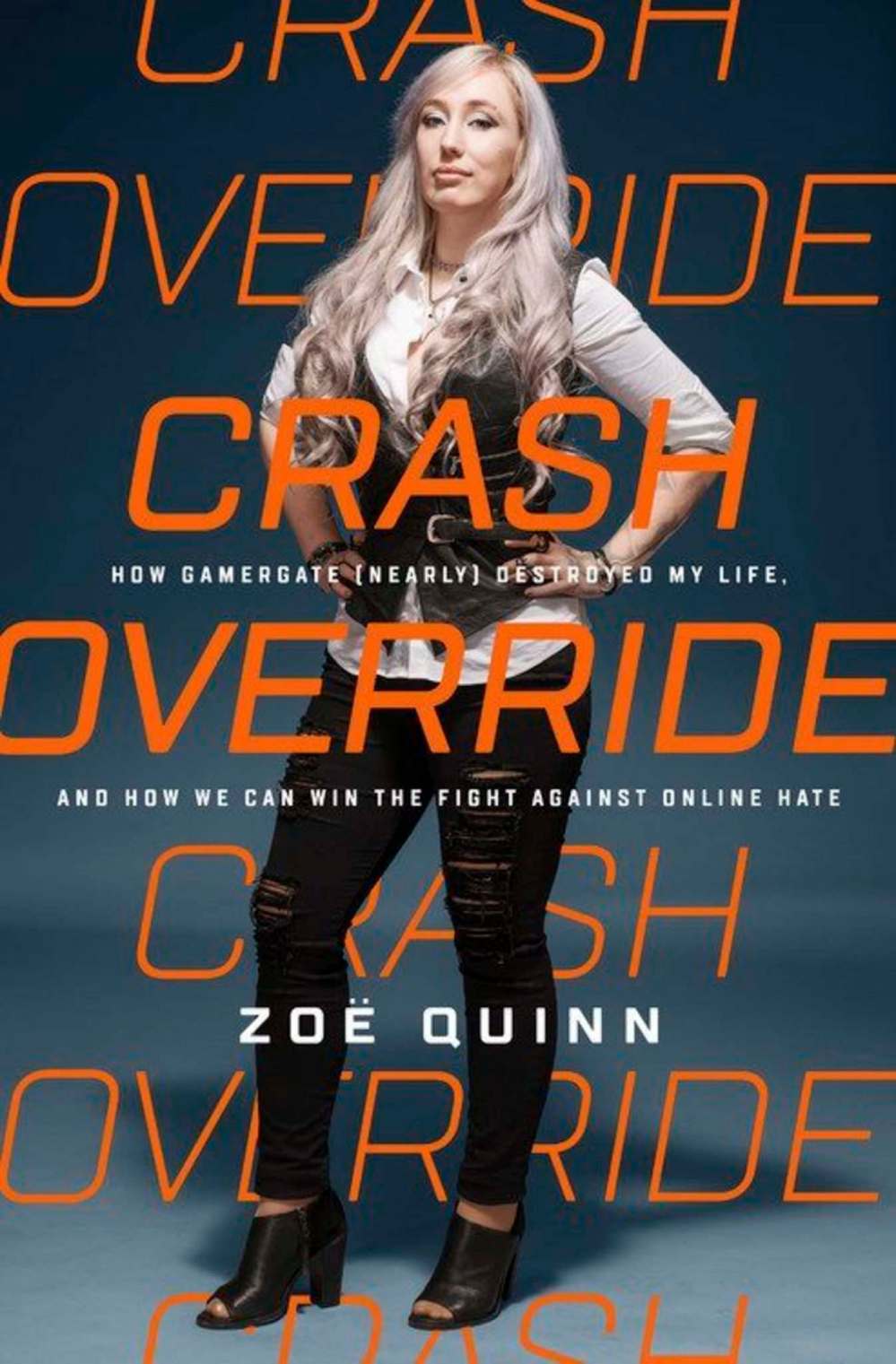Hard reset
Gamergate target speaks out on her struggles with online hate
Advertisement
Read this article for free:
or
Already have an account? Log in here »
To continue reading, please subscribe:
Monthly Digital Subscription
$1 per week for 24 weeks*
- Enjoy unlimited reading on winnipegfreepress.com
- Read the E-Edition, our digital replica newspaper
- Access News Break, our award-winning app
- Play interactive puzzles
*Billed as $4.00 plus GST every four weeks. After 24 weeks, price increases to the regular rate of $19.95 plus GST every four weeks. Offer available to new and qualified returning subscribers only. Cancel any time.
Monthly Digital Subscription
$4.99/week*
- Enjoy unlimited reading on winnipegfreepress.com
- Read the E-Edition, our digital replica newspaper
- Access News Break, our award-winning app
- Play interactive puzzles
*Billed as $19.95 plus GST every four weeks. Cancel any time.
To continue reading, please subscribe:
Add Free Press access to your Brandon Sun subscription for only an additional
$1 for the first 4 weeks*
*Your next subscription payment will increase by $1.00 and you will be charged $16.99 plus GST for four weeks. After four weeks, your payment will increase to $23.99 plus GST every four weeks.
Read unlimited articles for free today:
or
Already have an account? Log in here »
Hey there, time traveller!
This article was published 16/09/2017 (3074 days ago), so information in it may no longer be current.
Perhaps a chance involvement in a controversial news story did it, or a phone-in interview on the radio. Maybe a letter to the editor in the days following, or even some politically charged comments on Facebook or Twitter.
Whatever the original impetus, an ocean of hate has been unleashed against you: every imaginable insult, as well as a stream of vile sexual and racist threats are now filling your email inbox and Twitter feed. Your phone is ringing at all hours of the night, and your employer is similarly besieged, leading you to fear for your job. Soon, everyone in your inner circle, including your family, suffers similar attention as this invisible, anonymous mob tirelessly seeks to tear your life apart.
As American video game developer and activist Zoë Quinn argues in this disheartening but instructive and fiercely compassionate book, if it happened to her it could happen to you — or anyone.

For Quinn, her nightmare began in August 2014, when a former boyfriend published a lengthy online screed about her, alleging multiple infidelities — one in particular with a gaming journalist, supposedly to garner a positive review. As a modestly successful independent developer (and self-identified queer woman) in an industry dominated by men, Quinn was instantly and brutally targeted by an army of misogynist trolls in an incessant campaign that continues to this day.
Not only did this assault force her from her home in fear for her life, but it also instigated the regressive online culture war known as #Gamergate, a predominately white male backlash against feminist and race-based critiques of gaming media.
The reach of this campaign is as appalling as its contents: a search for Quinn’s name on YouTube yields more than 11,800 videos, the vast majority of them vitriolic or accusatory. Quinn points out that Gamergaters include many of the players of the “alt-right” (including recently ousted Trump strategist Steve Bannon), all of whom invariably justify their frenzied incoherent rage and contempt for women as a concern for “ethics in gaming journalism.”
Crash Override begins with Quinn’s frank account of her early life, which included battles with depression and substance abuse as well as work as a nude model, before explaining the harrowing circumstances of her “doxing” (the internet term for the malicious release of personal and identifying information such as one’s home address) and her desperate efforts to combat it.
She soon learned that the legal system and other conventional institutions are simply not adequately versed in the technologies and rapidly shifting tactics of online hate and were unable to help her, leaving her and a few close allies on their own.
Quinn relates all this with both candour and occasional humour, but demonstrates remarkable restraint when describing her attackers, declining to even mention them by name: her former boyfriend is “the ex” while several celebrities associated with Gamergate are only referred to with vague references to their better-known public lives.
Based on what she learned from her terrible experiences, Quinn founded a non-profit organization, the Crash Override Network (crashoverridenetwork.com), which assists victims of online abuse. It is funded by the brilliant Feminist Frequency YouTube channel produced by her friend and cultural critic Anita Sarkeesian — also, not incidentally, one of Gamergate’s primary targets.
She supplements her own story with numerous accounts drawn from media reports of online hatred directed against (mostly) women, persons of colour, or those identifying as LGBTTQ*, presenting a fairly disturbing portrait of our collective capacity for cruelty. Significantly, she does not exclude herself from this depiction, admitting that she, too, had thoughtlessly attacked people online in her youth.
It is this honesty, combined with her compassionate ability to speak to both victims and abusers as well as the linkages she draws between online misogyny and broader contemporary political hate campaigns, that makes this such an important and timely book, especially following the recent events in Charlottesville, Va.
More than being merely Quinn’s personal story or a manual for protecting your online privacy, Crash Override is a powerful manifesto for how we can all combat online abuse, bigotry, racism and sexism, and become better digital — and real-world — citizens.
Michael Dudley is a librarian at the University of Winnipeg.


